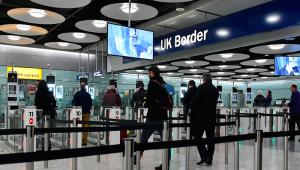Tim Knox, director of The Centre for Policy Studies, said high earners – the “geese that lays the golden egg” – “will either fly off to more attractive countries or just stop laying the golden eggs”.
“The top 1% of taxpayers already pay about 30% of all income tax,” Knox said, in response to Labour’s election manifesto pledge today to raise taxes.
“Forcing them to pay more might be politically tempting but is economically crazy,” he added.
Labour leader Jeremy Corbyn today announced his party’s manifesto, which promises to spend £48.6bn while increasing income tax on those earning more than £80,000, corporation tax to 26% and introducing a financial transactions tax.
The Institute for Fiscal Studies said Labour’s proposal to increase income tax would raise a “highly uncertain” figure – and possibly nothing.
It pointed out the party’s plans depended on the 1.3m high earners it would hit not reducing their taxable incomes as a result of the changes.
The IFS said it could raise £7bn per year – more than the £4.5bn expected by Labour - but added “some of those affected would respond by reducing their taxable incomes, reducing the amount raised”.
It warned: “Based on the available evidence this looks a little on the optimistic side, but it is entirely possible.
“However, it is also possible that the policy would raise nothing.”
But the Public and Commercial Services Union – the trade body for civil servants – backed tax reform, nationalising utilities, ending the public sector pay cap, improving collective bargaining, repealing anti-trade union legislation and strengthening employment rights.
The GMB union also expressed for support the Corbyn’s programme, calling it “a manifesto that makes sense for working people”.
Chris Ham, chief executive of health charity The King’s Fund, said the extra funds “will go some way to addressing the pressures facing the NHS and reversing the decline in social care services for older and disabled people”.
Labour plans to increase health and social care spending by £37bn over the next parliament.
Although, he said Labour’s suggestion to halt the Sustainability and Transformation Plans “risks holding back essential changes to services”.
Ruth Davison, executive director of public impact at the National Housing Federation, said: “The Labour Party are right to recognise the links between housing, infrastructure and construction skills,” she said.
Labour has committed to building 1m homes over the next parliament, half of which would be council homes.
Lib Dem shadow first secretary of state Alistair Carmichael accused Labour of committing itself to “Theresa May’s Brexit agenda” through its acceptance of an end to freedom of movement in its manifesto.
Conservative chief secretary to the treasury David Gauke said: “Jeremy Corbyn’s nonsensical ideas simply don’t add up.” He said the Labour pledges would lead to more debt.











